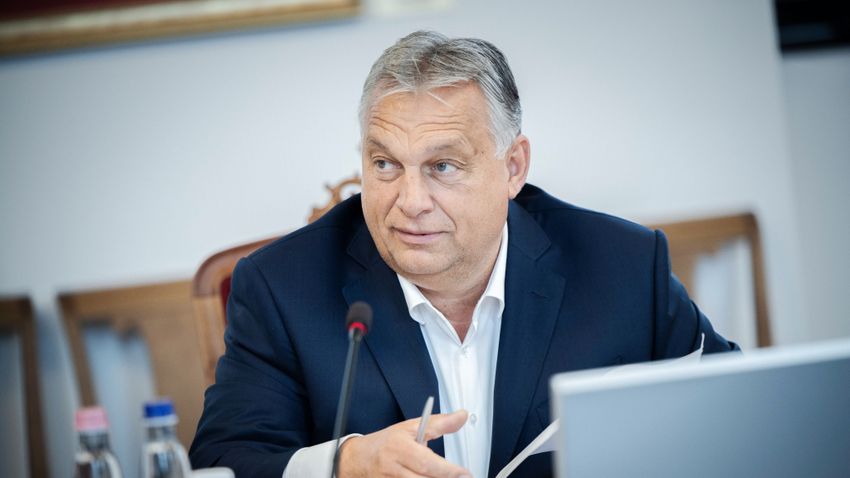Hungarian Prime Minister Viktor Orbán said on Monday during a speech to the Hungarian parliament that the European Union’s migration policy has completely failed, as evidenced by the massive migration crisis on Italy’s Lampedusa Island. He now warns that Hungary will be locked in battle with Brussels the entire autumn as the EU attempts to impose mandatory migrant quotas across Europe.
“The debate between Brussels bureaucrats and Hungary on migration will continue, deepen and probably widen during the autumn,” said Orbán. “At the end of June, a new migration pact was pushed through despite protests from Hungary and Poland. It is now September, and it is clear that the pact has already failed. Those arriving by sea on the island of Lampedusa are already giving the impression of a veritable invading army.”
Orbán is referring to the EU’s New Pact on Migration and Asylum, which was passed in a controversial manner earlier this year. The pact would create a mechanism for the mandatory relocation of migrants, including to countries such as Hungary and Poland, which have rejected migrant quotas in the past.
The Hungarian prime minister noted that the Mediterranean, although it is grabbing most of the headlines, is not the only illegal immigration hot spot, with the Balkan route seeing a surge as well.
“So far this year, 128,000 attempted forced entries have been thwarted at Hungary’s southern border. Attacks on border officers have become commonplace. There have been 168 serious attacks, and many of our officers have been injured. Migrant violence is on the rise,” said Orbán.
He also pointed to the growing use of firearms on the Hungarian-Serbian border, saying: “For three days now, automatic weapons have been fired at night at joint Serbian-Hungarian patrol units. The migrants have crossed the Rubicon on this, and under these circumstances Hungary cannot meet the demands of the Brussels bureaucrats.”
The issue of migrant quotas is likely to define Hungary’s relations with the EU over the coming year as tensions rise. Orbán referred to the EU’s migrant quota demands as a “crazy idea” in his speech.
“Brussels is demanding that these migrants be allowed into Hungary. It is demanding that we create a migrant camp, a migrant ghetto, for thousands, even tens of thousands of people in Hungary. Moreover, let us not only admit those besieging our borders, but let us also bring migrants from other European countries. They want to force upon us those from whom we are today protecting the southern border. Those who attack the Hungarian border guards with violence and weapons. This is a crazy idea that we cannot even comprehend with common sense.”
Orbán appeared to lay bare the growing resentment many conservatives feel over the direction of the EU under left-liberal rule, where nations were enticed with the benefits of joining the bloc, only for a bait-and-switch situation to develop in which Brussels demands ever increasing control over culture, migration, foreign policy, and a range of other issues that directly relate to the sovereignty of European nations.
“When we joined the European Union, there was talk of the free movement of capital or goods and the free movement of Europeans. There is not a single word in our treaty about the compulsory admission of migrants, migrant quotas or migrant ghettos, and we cannot accept such things after the fact. The autumn will be difficult because the people in Brussels want to ram the migrant pact down our throats before the European elections next year. Honorable parliament, according to the government, we do not need a migrant quota, but a border fence and border guards, and we do not need to bring trouble here, but to bring help there (to foreign non-EU countries).
Hungary is prepared to play a stronger role in crisis zones, including the hotly contested Sahel region (in Africa), but there will be no migrant quotas or migrant ghettos in Hungary. And there will only be a European solution if Brussels understands and accepts that only those whose applications have been assessed in advance and who have been granted permission to enter the territory of the European Union will be allowed to do so.





